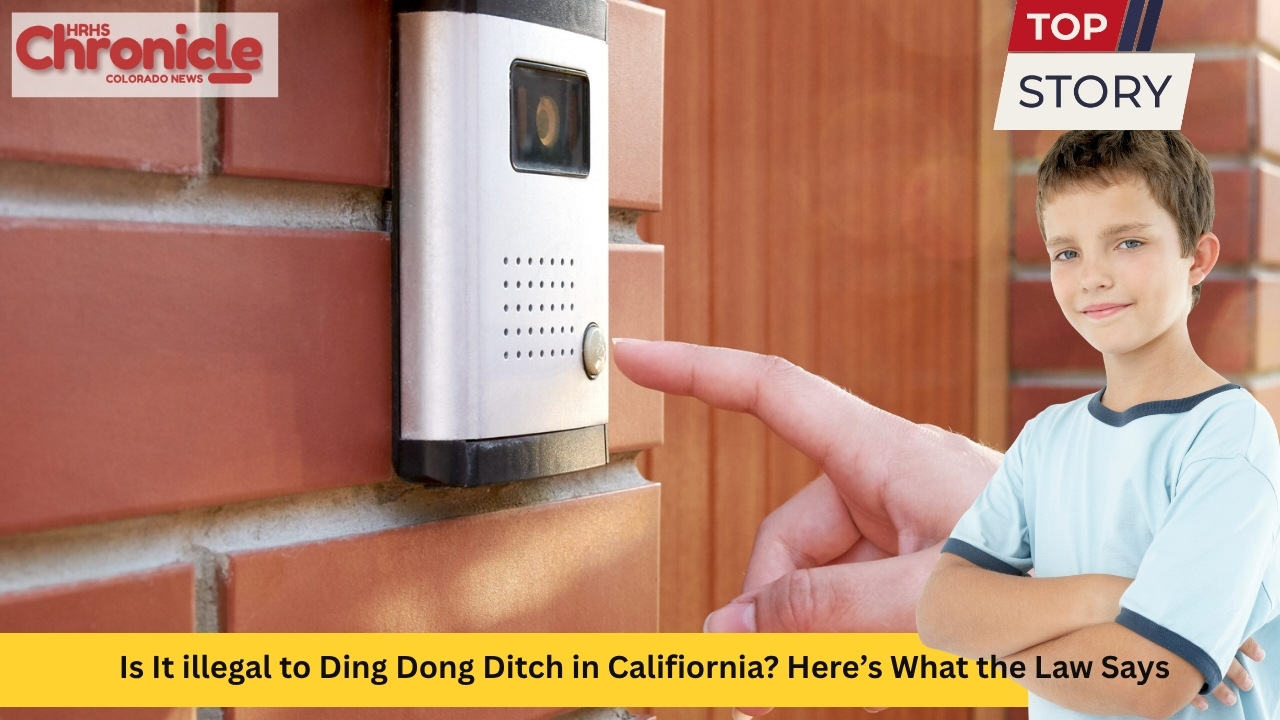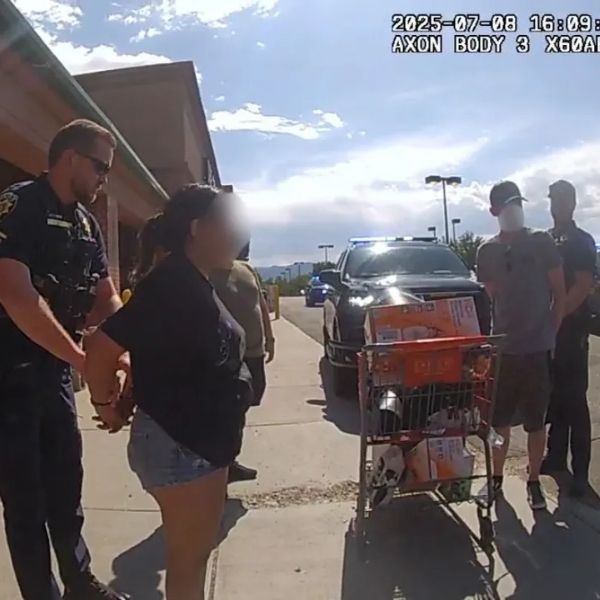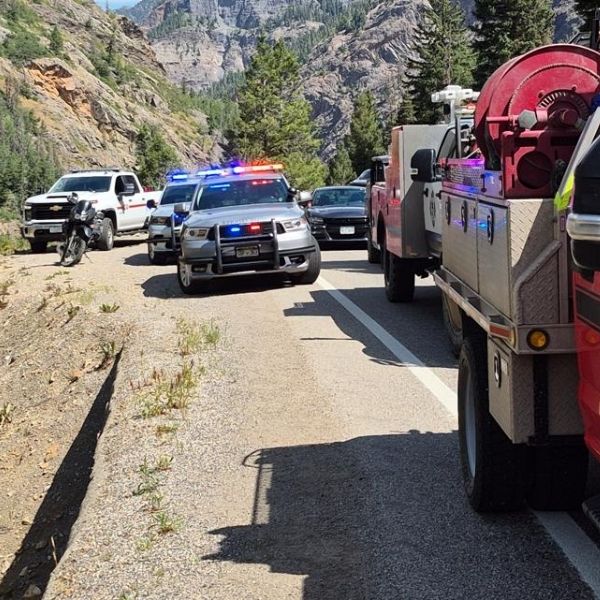Ding dong ditch—also known as “doorbell ditch,” “knock, knock, ginger,” or “ring and run”—is a time-honored prank where individuals ring a person’s doorbell and sprint away before the door is answered. This joke has played out in neighborhoods across California, from the busy streets of Los Angeles and San Diego to the quiet suburbs of Sacramento and Riverside. While it’s viewed by many as harmless childhood mischief, others consider it a nuisance or even a potential threat. But is it actually illegal to ding dong ditch in California? Here’s an in-depth look at what the law says, how city rules come into play, the potential consequences, and some real-life incidents that have shaped the conversation.
Is Ding Dong Ditch Illegal in California?
The Big Picture
There is no California state law outright banning ding dong ditch. However, this does not mean participants are free from risk. The legality of the prank depends largely on specific actions, any outcomes, and how local laws might apply to the situation.
Relevant Laws That May Apply
Trespassing:
California Penal Code § 602 covers trespassing. Entering private property without permission can be considered trespass. While most homes welcome visitors to their front door, a ding dong ditcher who ignores “No Trespassing” signage or re-enters after being told to leave could be breaking this law.
Disturbing the Peace:
California Penal Code § 415 prohibits behavior that unreasonably disturbs someone’s peace. Repeated or excessively loud pranks, especially if they happen late at night, could trigger this statute.
Harassment:
California law considers repeated, targeted behavior that causes emotional distress as harassment. If pranksters focus on a particular home or family—especially in cities like San Jose or Long Beach, where tight-knit neighborhoods may feel especially vulnerable—the behavior could be interpreted as harassment.
Vandalism and Property Damage:
If the prank involves breaking property—accidentally shattering a window, pulling a doorbell off, or damaging landscaping—the offense could escalate to misdemeanor or even felony vandalism charges under California Penal Code § 594.
City Ordinances and Local Enforcement
Local municipalities in California often set their own rules regarding nuisance activities, curfews for minors, and noise. For example:
-
Los Angeles: Has stringent noise regulations and city ordinances against loitering or disrupting neighborhoods, particularly after dark.
-
San Diego: Enforces strict curfew hours for minors, meaning kids out ding dong ditching after hours could be detained or cited.
-
Santa Monica: Local police may issue warnings or citations if the behavior is repetitive or leads to complaints from neighbors.
Law enforcement is more interested in patterns of disturbance or incidents where the prank crosses the line into harassment, rather than isolated, one-off occurrences.
Real-Life Cases and Notable Incidents
While many view ding dong ditch as a harmless game, there have been high-profile cases that ended in tragedy or severe legal action.
-
Corona, Riverside County: In 2020, a group of teens played a doorbell prank at a home in Corona. The homeowner, angered by the prank, pursued the teens and caused a deadly car crash. The case resulted in a life sentence for the homeowner—a stark reminder of how quickly situations can escalate.
-
San Francisco: Reports from local neighborhood groups indicate a rise in doorbell prank calls in certain suburbs, prompting increased patrols and warnings issued to minors found engaging in “repeat nuisance behavior.”
-
Santa Clara: In one instance, a homeowner filed repeated police reports after being targeted by teens over several weeks, resulting in charges for harassment and community service for those involved.
These cases highlight the variability in legal outcomes and the potential for what begins as a playful act to spiral into something with real consequences.
Legal Consequences of Ding Dong Ditching
Consequences for participating in a ding dong ditch prank can vary widely and are influenced by intent, outcome, and frequency. Here are several possibilities:
Warnings
Law enforcement in California cities, such as Anaheim and Fresno, are more likely to issue a warning for the first reported occurrence—especially if the pranksters are minors.
Fines and Misdemeanors
If the behavior is repeated or involves property marked by “No Trespassing” signs, pranksters can face fines. Trespassing and disturbing the peace are usually misdemeanors and may carry penalties such as community service or a fine.
Criminal Record
For repeated incidents, or if the act results in emotional harm or property damage, individuals may acquire a permanent record—especially adults. Some California cities are adopting a zero-tolerance stance in school zones or senior communities, making repeated ding dong ditching an offense that can affect a person’s criminal record.
Ding Dong Ditch Cases in Different California Cities
Los Angeles
As the largest city in California, LA receives dozens of complaints annually related to pranks and minor vandalism. Data from the LAPD shows that 28% of nuisance calls in 2024 related to neighborhood pranks were resolved with a warning, while 12% resulted in a citation.
San Diego
The SDPD regularly reminds families about the importance of respecting community peace, especially in the wake of rising reports in university neighborhoods like Pacific Beach and La Jolla.
San Jose
Neighborhood watch groups in San Jose’s Almaden Valley have worked with police to educate young people after a string of late-night pranks caused concern among senior residents.
Sacramento
The city’s diverse suburbs report that pranks increase during spring and summer breaks. Neighborhood coalitions work with local schools to encourage respectful behavior.
Fresno
Fresno City Council in 2023 discussed an ordinance to fine repeat juvenile offenders $100 to $500 for nuisance pranks, including doorbell ditching.
Stats and Facts
-
In 2023, more than 2,000 nuisance complaints related to pranks, including ding dong ditch, were made to Los Angeles law enforcement.
-
About 35% of Californians surveyed in a 2024 poll indicated they had experienced a prank such as ding dong ditching within the past two years.
-
Legal experts say that fewer than 5% of these cases result in formal charges, but repeated offenses, escalations involving property damage, or targeted harassment do see formal prosecution.
Parental Responsibility
If minors are involved, parents may be held civilly responsible for any monetary damages that result from their children’s actions. Schools, such as those within the Long Beach Unified School District, occasionally address the issue during student assemblies, encouraging kids to consider the consequences of neighborhood pranks.
How to Handle Ding Dong Ditch – Advice for Residents
-
Stay Calm: Most instances are isolated pranks. Exiting your home in anger or attempting to chase pranksters can escalate the situation.
-
Report Repeated Incidents: Keep a log of dates and times if you believe your house is being targeted.
-
Install Security Cameras: Cities like Santa Monica recommend doorbell cameras, which deter mischief and provide evidence if necessary.
-
Contact Law Enforcement if Problems Persist: Especially if the prankning becomes routine, occurs late at night, or results in property damage.
What Should You Do If You’re Accused?
Anyone accused of or charged with a crime related to ding dong ditching in California should take accusations seriously. Contacting a legal professional for advice is a wise step, even if the action started as mere mischief. The context and consequences will significantly affect the outcome—sometimes a sincere apology, restitution for minor damage, or attending mediation sessions can resolve matters before escalating to court.
Preventing Misunderstandings and Ensuring Safety
Due to high-profile tragedies, awareness is growing about the danger that can come from both sides: frightened homeowners and pranksters oblivious to risk. Neighborhood organizations from Oakland to Chula Vista are launching awareness campaigns, reminding everyone that safety and communication are key.
Conclusion
Ding dong ditching remains a controversial prank in California. While not per se illegal, it can easily cross the line into criminal or civil wrongdoing—especially if the property owner feels threatened, if there’s repeat harassment, or if property is damaged. What starts as play can transform into a serious situation, with real consequences for everyone involved.
Understanding the law, respecting neighbors, and considering the impact of one’s actions are the best ways to ensure that laughter, not conflict, remains the lasting memory from California’s neighborhoods. Whether you’re in a big city like San Francisco or a small town like Chico, the same advice applies: have fun, but always respect others’ boundaries and the laws meant to protect everyone’s peace.
HelpFul Links
- https://www.reddit.com/r/bestoflegaladvice/comments/17y8mkh/laca_discusses_ding_dong_ditch_law/
- https://www.nytimes.com/2023/07/16/us/doorbell-prank-california-sentence.html
- https://en.wikipedia.org/wiki/Knock_down_ginger
- https://www.answers.com/law/Is_ding_dong_ditching_illegal
- https://www.youtube.com/watch?v=ZCp1zh23YbM
- https://www.youtube.com/watch?v=4pybDR2VT1M

Mrs. Odice has been a teacher here for 9 years. She likes yoga and spends most of her time with her 3 kids. She also grew up going to Douglas County schools and is Canadian.















Leave a Reply